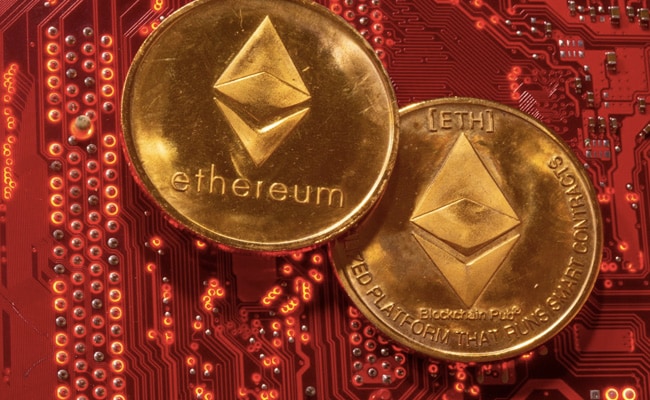Ethereum – What I Hate, Love, and Fear About the Cryptocurrency
Ethereum is NOT a blockchain. It’s NOT a cryptocurrency either! It’s actually a protocol (a set of rules or procedures). When you browse the Internet, you may have noticed that website URLs begin with an HTTP or HTTPS. That’s hypertext transfer protocol. Emails use simple mail transfer protocol, post office protocol. All the coolest tech stuff runs on protocols.
Ethereum is a protocol. And multiple independent blockchains run on it – most popular being Mainnet, Görli, Kovan, Rinkeby, and Ropsten. These blockchains do NOT talk to each other.
When most people talk about Ethereum, they are talking about Mainnet – the primary public Ethereum production blockchain. This is where actual-value transactions occur on the blockchain. The native crypto of this Ethereum is Ether (ETH). At the time of writing, the price of 1ETH is $3,577 or approximately Rs. 2,77,750. Let’s stick to this definition for this post.
And then there’s Ethereum Classic, the original version, with its native crypto ETC. The moral of the story so far is – There’s more to Ethereum than meets the eye. Let’s dive in.
1. What I hate about Ethereum
I hate that Ethereum is neither “immutable” nor “censorship-resistant”. Surprised? Let’s go back to 2016.
A bunch of really smart people came up with the concept of decentralized autonomous organizations (DAO). That’s kind of like a cooperative society — think co-op banks or even the Amul milk co-op. The difference being that a DAO exists only on a blockchain and its rules are coded in “smart contracts”. By the way, smart contracts are neither smart nor contracts. But that’s a rant for another day.
So anyway, this DAO raised about $150 million USD worth of ether (ETH) through a token sale. But a really smart hacker exploited a bug in the “smart contract” and siphoned out all the money! Now, logically nothing should have been done about this. Blockchains are “immutable” and “censorship-resistant”, right? Again, that’s a rant for another day.
But a bunch of people proved that Ethereum is neither “immutable” nor “censorship-resistant”. They implemented a “hard fork” and rolled back Ethereum’s history to before the hack. This reallocated the hacked ether to a different “smart contract” and allowed investors to withdraw their funds.
The purists hated this and that’s what led to Ethereum splitting into 2 blockchains: Ethereum and Ethereum Classic.
Did you know?
- ETH, the native crypto of Ethereum is soaring at $3500 with a market cap of over $400 billion.
- ETC, the native crypto of Ethereum Classic is languishing at $50 with a market cap of$7 billion.
2. What I love about Ethereum
Ethereum has pioneered decentralized finance (DeFi).
An amazing multi-billion dollar ecosystem has evolved around it:
- $100+ billion of fiat pegged & algorithmic stablecoins
- Innovative projects like Uniswap, Chainlink, Aave, Unstoppable Domains, Basic Attention Token, Polygon and OpenSea
- Asset-backed cryptos like tokenized stocks
3. What I fear about Ethereum
The high price of ETH will kill Ethereum. As a blockchain, Ethereum is valuable only if startups, DAOs, and developers continue to build upon and use it.
Investors, on the other hand, don’t give a rat’s a** for the blockchain. They only want ETH to “moon” and “lambo”. So as ETH soars, Ethereum becomes infeasible for users. Imagine this — it costs $160 to transfer $100 worth of tokens! Yes, that’s how ridiculous things have become.
This is leading startups, DAOs, and developers to migrate to “Ethereum-killers” like Cardano and Solana.
Let’s take an example to understand how silly this situation has become.
In the conventional world, we need fuel (petrol, diesel, coal, electricity, etc) to power the transportation sector (trains, planes, trucks, etc). Now suppose the price of fuel skyrockets. It would impact the entire global economy. Everything would become very expensive. The transportation sector would then be forced to move to alternative energy like solar.
That’s what the ETH price is doing to the cost of doing business in the world of decentralized finance (DeFi). ETH is the fuel for DeFi. Raise its price and you destroy DeFi.
The second thing I fear is the sudden creation of a huge number of ETH. Unlike Bitcoin which has a cap of 21 million coins, there is no limit on how much ETH can be created. So, if a rogue group suddenly created a huge quantity of ETH, its price could crash to near zero!
The third thing I fear is a major flaw or bug being exploited. Ethereum is undergoing a lot of technological upgrades to improve transaction speeds, reduce gas fees and migrate from proof-of-work to proof-of-stake. One major bug and ETH could lose its value and crash to zero.
Rohas Nagpal is the author of the Future Money Playbook and Chief Blockchain Architect at the Wrapped Asset Project. He is also an amateur boxer and a retired hacker. You can follow him on LinkedIn.
Interested in cryptocurrency? We discuss all things crypto with WazirX CEO Nischal Shetty and WeekendInvesting founder Alok Jain on Orbital, the Gadgets 360 podcast. Orbital is available on Apple Podcasts, Google Podcasts, Spotify, Amazon Music and wherever you get your podcasts.
Cryptocurrency is an unregulated digital currency, not a legal tender and subject to market risks. The information provided in the article is not intended to be and does not constitute financial advice, trading advice or any other advice or recommendation of any sort offered or endorsed by NDTV. NDTV shall not be responsible for any loss arising from any investment based on any perceived recommendation, forecast or any other information contained in the article.
For all the latest Technology News Click Here
For the latest news and updates, follow us on Google News.

